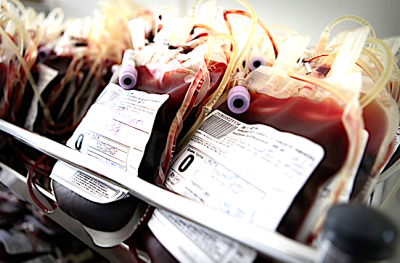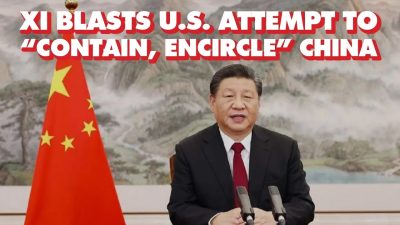Brexit: The Real Reason Why the UK Is Stocking Blood Supplies

Note to readers: please click the share buttons above
It is reported that the UK will stockpile medicine and blood supplies in the event of a no-deal Brexit, according to the new Health Secretary Matt Hancock. Hancock told the Health Select Committee that he had met with medical industry leaders to “accelerate” preparations for the possible outcome in March next year.
The UK relies on 370 million packs of medicine from the EU a month, as well as blood plasma supplies and radioactive isotopes used in X-rays.
It’s a pity then that the Conservatives had not thought earlier about the privatisation of Britain’s blood bank – which it sold to an American ‘equity’ outfit called Bain Capital a few years back when George Osborne was on his ‘sell-it-off’ frenzy of state assets.
The story of selling the national blood supplier to an American corporation, known for asset stripping and profiteering from privatisation, who has no national interest, either to the country or the people who reside in it doesn’t end there. As private equity firms go, it was never hard to guess what happened next, yes, you got it, it was sold on again for even greater profit and to the huge loss to the beleaguered taxpayer.
Bain Capital bought an 80% share in Britain’s national blood supplier for £230 million in 2013 and just 3 years later, sold it to a Chinese company called Creat for a total cash consideration of £820m. The taxpayer lost nearly £600 million and its secure blood supply.
That this national asset was sold for £230 million and resold just three years later for £820 million is a scandal in its own right. Just like the disposal of the Post Office was.
As we wrote in our article: The Truth About Britain’s Blood Supply Scandal –
“Creat paid cash. They have that much money because Chinese plasma product supply companies are highly profitable businesses and China is suffering a shortage of these products. What does that tell you? And when they divert supplies to more profitable markets will Britain be left short? British blood must be worth something.
The National Health Action Party (NHAP) issued warnings in 2013 about the potentially dangerous consequences of selling the state-owned blood supplier, Plasma Resources UK to US private equity firm Bain Capital.“
One should not forget that the NHS blood transfusion system requires 6,000 donations every single day and 200,000 new donors a year to meet the needs of patients across England. There is usually less than a week’s supply of blood in the UK’s blood banks at any one time and around one in four of us will need blood at some point in our lives. A single donation can save the lives of up to three people.
All of that blood is given free by its citizens and we were self-sufficient – but now the government is facing a potentially life-saving operation by being dependent on the EU to bring in what we already had – free. EU Member States have more than 1,350 blood large-scale establishments collecting more than 20 million whole blood donations a year.
So what the government never told anyone publicly was that because blood supplies were available to everyone within the EU, George Osborne thought it would be an excellent idea to sell Britain’s own blood supply company that ended up filling the veins of wealthy Chinese people, which we give free, which they have to pay for – but not to us!
The Health Secretary said:
“We are working right across government to ensure that the health sector and the industry are prepared and that people’s health will be safeguarded in the event of a no-deal Brexit. This includes the chain of medical supplies, vaccines, medical devices, clinical consumables, and blood. And I have asked the department to work up options for stockpiling by industry.”
Simon Stevens, chief executive of NHS England, said earlier this month that “significant planning” was underway to prepare for all outcomes.
Labour’s shadow health secretary Justin Madders said the preparations represented
“the terrifying reality of this government’s failure to prioritise the NHS in the Brexit negotiations. We need a Brexit deal which puts patients first but now we know that the NHS is having to stockpile medicines because of this government’s chaotic handling of Brexit.”
If Britain fails to successfully negotiate a deal by March next year, it will automatically leave the EU – an outcome that could be catastrophic.
As for food supplies – Theresa May has told government departments to “accelerate” for no-deal planning. They plan to issue weekly guidance to businesses and households over the course of the summer right on up to next March.
New Brexit secretary Dominic Raab has also informed MPs on Tuesday that the government would take steps to ensure there was an “adequate food supply” if the UK leaves without a deal next year. Britain imports 31 per cent of its total food supplies from the EU.
Food supplies could run out in a matter of a few days with one irresponsible headline in a national newspaper or a social media rumour causing severe shortages.
The Independent writes:
“Brexit poses “real risks” to the cost, availability and quality of the UK’s food supplies, which the Government has shown little sign of addressing, researchers claim. A report from food policy specialists has warned the forthcoming break from Europe will lead to “chaos” unless ministers establish a clear plan on how a new food system will operate. Currently, the EU props up a huge chunk of Britain’s food supply – providing 31% of its food – which the authors suggest cannot be walked away from without provisions in place.”
*
Featured image is from TruePublica.



